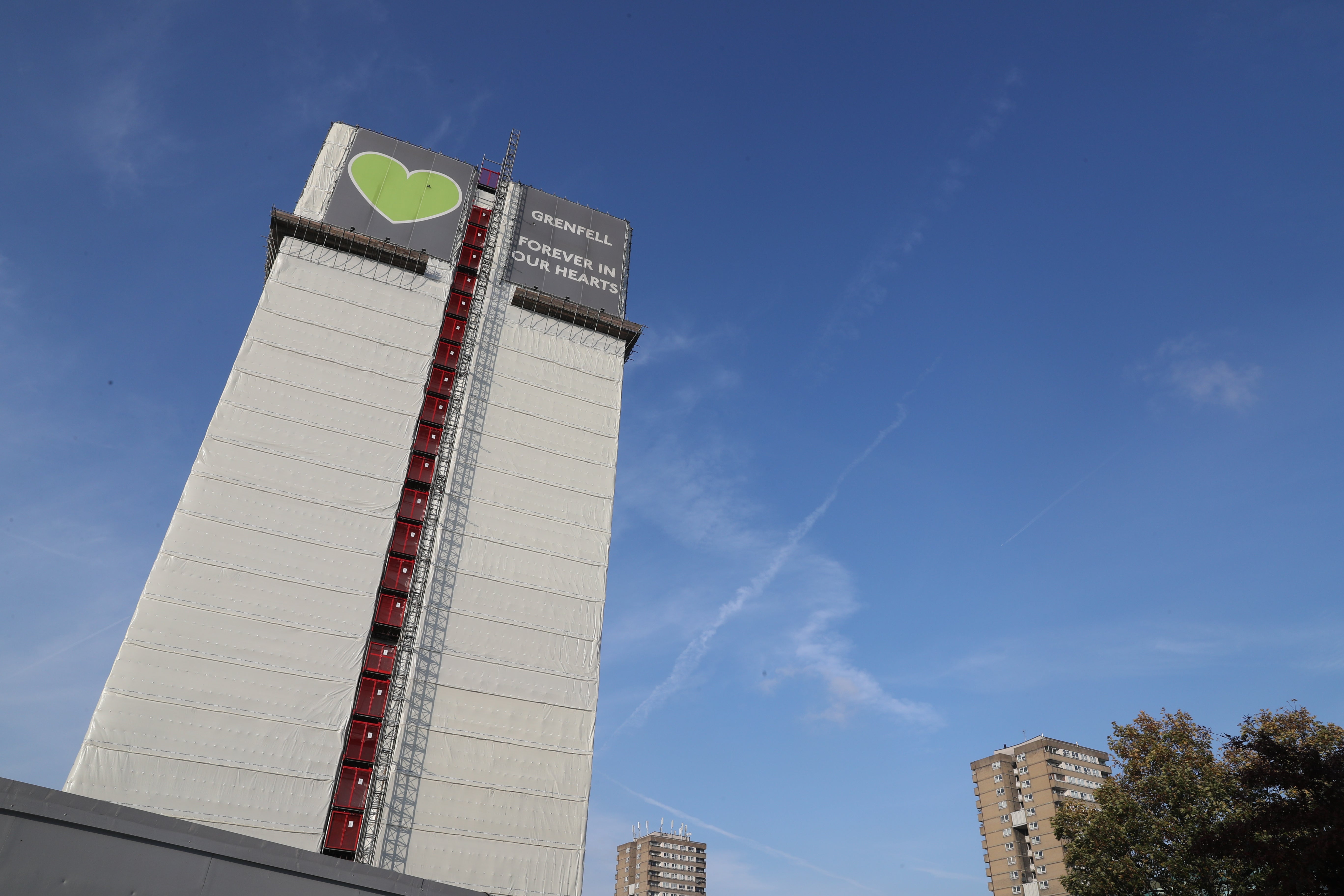
Dozens of buildings in the UK still have the same type of cladding as Grenfell Tower almost five years after the disaster, new Government figures showed.
Authorities have identified 481 buildings with ACM panels, which were blamed for the rapid spread of the 2017 tower block fire that killed 72 people.
But, as of last month, remediation work had only been finished on 289 of them.
It means 192 – almost 40% – still had unsafe cladding or had not been signed off as safe yet.

The proportion of buildings where work is complete was also lower for private sector blocks, with fewer than half – just 48% – signed off as safe.
Alongside the release of the new figures, the Department for Levelling Up, Housing and Communities said: “A series of measures have been taken to ensure that remediation occurs quickly and safely.
“The Government is determined to learn the lessons from the Grenfell Tower tragedy, by making funding available to address the fire safety risks of unsafe cladding on homes and bringing forward the most significant building safety reforms in almost 40 years.”
Communities Secretary Michael Gove met developers on Thursday to discuss funding for works to rectify cladding and building safety issues.
The Home Buyer’s Federation (HBF) called on Mr Gove to widen discussions to other parties like freeholders or building material companies helping to potentially foot the cost.

The meeting followed a pledge from ministers to amend legislation to better protect thousands of leaseholders from being hit with hefty bills for safety work.
The Building Safety Bill, which is due to undergo further scrutiny in the Lords before potentially becoming law, would give a new regulator the power to prosecute rule-breaking developers and take their properties off the market.
Giles Grover, from the End Our Cladding Scandal campaign, said it welcomed Mr Gove’s attempts to pressure developers to “properly engage and provide real help to innocent leaseholders”.
“However, as always, we need to see this actually lead to firm action on the ground to make buildings safe quickly,” he added in a statement.
“We remain concerned that the development community will only do the right thing if they are forced to do so.”







